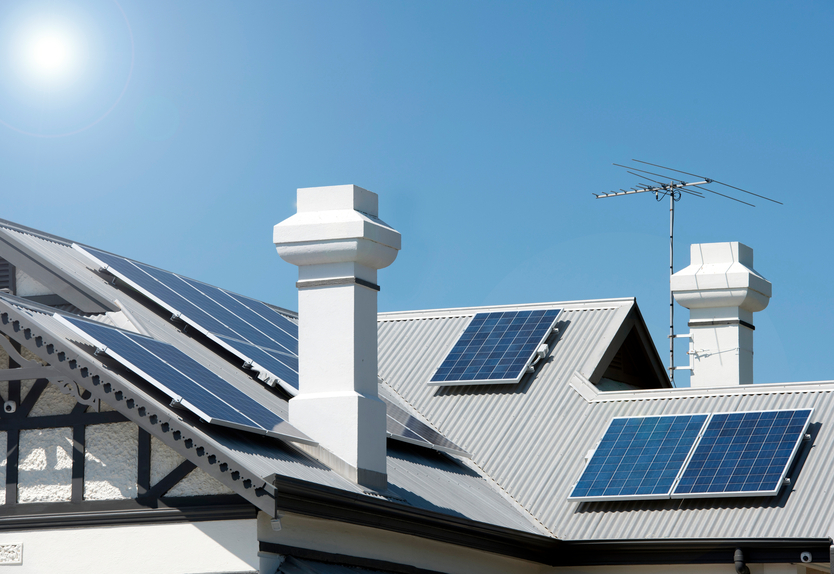Energy Efficiency 24 PDH Discount Package
Continuous Commissioning - Maximizing Building Energy Efficiency and Comfort (M10-001)
Economizers in Air Handling Systems (M02-014)
Energy Savings in MEP Systems - Energy Systems (M08-002)
Residential Solar Water Heating (M02-018)

This online engineering PDH course provides guidance on passive solar technology for heating buildings. It discusses basic passive solar heating systems for buildings including direct gain heating, daylighting, radiant panels, thermosiphoning air panels, thermal storage walls, sunspaces, and incremental cooling load. It describes climatic considerations including characteristic weather parameters, climate-driven conservation measures, and solar availability to determine feasibility of cost-effective passive solar systems at specific project sites. It presents guidelines for schematic design of passive solar building heating systems including building shape and orientation, non-south windows, passive heating system characteristics, sizing overhangs, insulation levels, infiltration, solar collection areas, and thermal storage mass.
Passive solar energy is one of the most efficient forms of energy in the world. Not only does it reduce the cost of energy for your company, agency or clients, it reduces the demand on limited global energy supplies and avoids carbon emissions and other global environmental impacts associated with energy production and utilization.
This 2 PDH online course is intended for civil, structural, mechanical, electrical and architectural engineers who are involved in the design, construction, operation and maintenance of solar passive buildings and related infrastructure.
This PE continuing education course is intended to provide you with the following specific knowledge and skills:
- Learn about direct gain heating systems
- Learn about radiant panel systems
- Learn about thermosiphoning air panel systems
- Learn about thermal storage walls
- Learn about sunspaces
- Learn about characteristic weather parameters
- Learn about climate and conservation measures
- Learn about solar availability
- Learn about guidelines for schematic design
In this professional engineering CEU course, you need to review the course document titled: "An Introduction to Passive Solar Buildings".
Upon successful completion of the quiz, print your Certificate of Completion instantly. (Note: if you are paying by check or money order, you will be able to print it after we receive your payment.) For your convenience, we will also email it to you. Please note that you can log in to your account at any time to access and print your Certificate of Completion.

This online engineering PDH course describes Continuous Commissioning basics and benefits. The course also describes specific energy improvement measures related to water/steam distribution systems, central chiller and heating plants, thermal storage systems. In addition multiple case studies are discussed to show real continuous commissioning retrofit applications.
Building commissioning has emerged as the preferred method of ensuring that building systems are installed and operated to provide the performance envisioned by the designer. While most commissioning processes focus on bringing building operation to the original design intent, Continuous Commissioning focuses on optimizing HVAC system operation and control for the existing building conditions. It is an ongoing process to resolve operating problems, improve comfort, optimize energy use and identify retrofits for existing commercial and institutional buildings and central plant facilities.
This 10 PDH online course is applicable to mechanical engineers, design and construction personnel, technical staff and facility personnel who are interested in gaining a better understanding of continuous commissioning.
This PE continuing education course is intended to provide you with the following specific knowledge and skills:
- Benefits of continuous commissioning
- Basic continuous commissioning measures
- Continuous commissioning for water/steam distribution
- Continuous commissioning for central chiller plants
- Continuous commissioning for central heating plants
- Continuous commissioning for thermal storage systems
- Continuous commissioning for optimal building performance
In this professional engineering CEU course, you will need to review the material contained in the Continuous Commissioning Guidebook for Federal Energy Managers, Maximizing Building Efficiency and Comfort, DOE, Federal Energy Management Program, October 2002.
Upon successful completion of the quiz, print your Certificate of Completion instantly. (Note: if you are paying by check or money order, you will be able to print it after we receive your payment.) For your convenience, we will also email it to you. Please note that you can log in to your account at any time to access and print your Certificate of Completion.

This online engineering PDH course describes how air-side economizers are used in air handlers serving commercial buildings. It also discusses when and when not to use economizers, how economizers are controlled, how economizers can save or waste energy, what to look for if economizers are not working properly and other issues related to economizer applications.
An air-side economizer is an HVAC control system that can provide significant cooling energy savings when much as they should and some waste a lot of energy. Economizers save energy by using outside air to cool buildings. Better design, controls, installation, monitoring, and maintenance can help economizers meet their potential.
This 2 PDH online course is applicable to mechanical engineers who design HVAC systems for buildings where the climate is appropriate for air-side economizers.
This PE continuing education course is intended to provide you with the following specific knowledge and skills:
- What are economizers and how do they work
- Specifying economizers
- Principles of operation of economizers
- Definition of terms related to economizers
- Control of economizers
- When to and not to use economizers
- How much energy economizers can save or waste
In this professional engineering CEU course, you need to review the material contained in the Energy Design Resources, Design Brief, Economizers publication.
Upon successful completion of the quiz, print your Certificate of Completion instantly. (Note: if you are paying by check or money order, you will be able to print it after we receive your payment.) For your convenience, we will also email it to you. Please note that you can log in to your account at any time to access and print your Certificate of Completion.

This online engineering PDH course describes a wide variety of integrated sustainable concepts and practical ideas from design to facility operation that will help with the integration of the various systems within the building. Part V of this source document focuses on the energy using systems of a facility including HVAC, lighting, water heating, energy control, motors, etc.
In today's building industry the concept of integrated sustainable design has taken root and is branching out into full blossom. Green is considered the responsible way to design. Integrated design is a process whereby the various disciplines involved in design (architects, mechanical and electrical engineers, interior design professionals, etc.) work together to come up with design solutions that maximize performance, energy conservation, and environmental benefits.
This 8 PDH online course is applicable to all engineers, design and construction personnel, technical staff and facility personnel who are interested in gaining a better understanding "green" integrated building design in general and more specifically for federal buildings.
This PE continuing education course is intended to provide you with the following specific knowledge and skills:
- Energy and conservation issues
- Boilers, air distribution systems, chillers, absorption cooling
- Desiccant dehumidification
- Ground-source heat pumps
- HVAC technologies to consider
- Heat-recovery water heating, solar water heating
- Fluorescent lighting, electronic ballasts, lighting controls, exterior lighting
- Office, food service, and laundry equipment
- Energy management
- High-efficiency drives, variable-frequency motors, power factors
- Electric power systems analysis
- Microturbines, fuel cells, photovoltaics, wind energy, biomass energy systems
- Combined heat and power systems
In this professional engineering CEU course, you will need to review the material contained in the Greening of Federal Facilities, Second Edition, May 2001, Part V, Energy Systems.
Upon successful completion of the quiz, print your Certificate of Completion instantly. (Note: if you are paying by check or money order, you will be able to print it after we receive your payment.) For your convenience, we will also email it to you. Please note that you can log in to your account at any time to access and print your Certificate of Completion.

This online engineering PDH course describes some of the basics for residential solar water heating including system types, sizing considerations, energy saving ranges and other factors involved with residential solar water heating.
Utilizing the natural heat of the sun to heat residential domestic water is a way to save fuel in a manner that will help reduce the use of other fuels. Solar heating is a "green" sustainable energy source selection.
This 2 PDH onlinecourse is applicable to mechanical engineers, design and construction personnel, technical staff and facility personnel who are interested in gaining a better understanding in residential heating water systems.
This PE continuing education course is intended to provide you with the following specific knowledge and skills:
- Residential solar water heating system types
- Solar water heating selection considerations
- Solar water heating design parameter considerations
- Energy savings awareness
- Contractor selection considerations
In this course, you need to review the material contained in "A consumer's Guide - Heat Your Water with The Sun", US Department of Energy, December 2003, DOE/GO-102003-1824.
Upon successful completion of the quiz, print your Certificate of Completion instantly. (Note: if you are paying by check or money order, you will be able to print it after we receive your payment.) For your convenience, we will also email it to you. Please note that you can log in to your account at any time to access and print your Certificate of Completion.